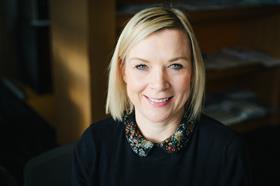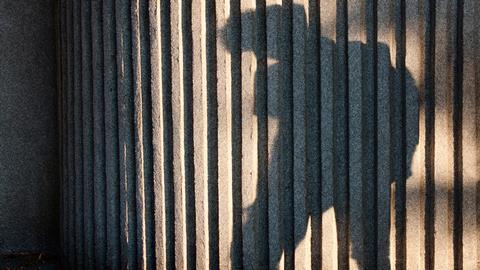We should roll into a new year filled with renewed hope and optimism. Instead, we're continuing to feel the impact of multiple converging crises like climate breakdown, the ongoing Covid pandemic and soaring inequality. Now is the time for legal professionals to consider how their choices may impact these crises to create different futures for all.

One manifestation of these crises is the fast deterioration of the mental health of young people and children in detention. Due to the Covid-19 pandemic, children are spending longer locked up, stuck in a bottleneck of delayed court hearings. The virus has also led to 22-hour isolation, without family visits or educational activities, reaching the international threshold for cruel, inhumane and degrading treatment, and even torture. Shockingly, a significant number of these children are only on remand and have not been convicted of a crime.
This localised crisis is reflective of an unstable world where children are suffering injustice as they come into contact with, or conflict with, the law. Children are being trafficked across the English Channel only to be incarcerated rather than housed, while the Global Study on Children Deprived of Liberty reports that seven million children worldwide are deprived of liberty and their childhoods.
Without reform of child justice systems, things will get bleaker still.
In December 2021, a new scenario for 2025 was set out at the World Congress of Justice With Children. The research was compiled by the Global Initiative on Justice with Children with futurologists, lawyers and academics, alongside children and young people with lived experience of justice systems. 4,900 participants from 150 countries heard about the research led by Cedric Foussard, the Coordinator for the Global Initiative on Justice with Children.
The research highlights a global picture of a spiraling situation.
Extreme weather events will drive mass migration with more children flooding into creaking child justice systems, alongside weakened public health and care systems. Viral disinformation campaigns will rage that the dangerous criminal youth are either radicalised migrants or vectors of disease. In response, populist governments will buckle and crank up punitive policy on child justice and detention. Justice systems are not immune to societal changes.
The research shows that the negative and unexpected consequences of child detention are worse than previously thought, such as:
- The impact on cognitive functions, physical development and long-term health.
- Detained children are often denied the nutrition they need to grow and develop.
- They are excluded from education and exercise.
- Their social skills suffer, especially conflict resolution and self-control and therefore holding down a job becomes very difficult.
- Due to all of the above, they find it hard to avoid adult incarceration.
The 2021 World Congress raised awareness of this chaotic trajectory and addressed the issue of the minimum age of criminal responsibility (MACR) and the minimum age of deprivation of liberty. This varies widely from country-to-country. In Scotland, the MACR threshold has been raised from eight to 12 (as part of the Age of Criminal Responsibility Act 2019).
The UN Committee on the Rights of the Child states that the MACR is 14, average for Europe. In the rest of UK, it’s just 10.
Regardless of age, we must build child-centred justice pathways for each situation or offence, informed by international human rights frameworks, while assessing the child's welfare needs. Justice systems must support children to be included and reintegrated into society. To achieve this, community based measures should be the absolute priority. The use of conflict resolution mechanisms via restorative justice, educational and mentoring programmes into society is proven to be more efficient. In the very few cases where deprivation of liberty is requested by law, children should be detained in trauma-informed secure care with education, healthcare provision and psychologists, rather than in prison-like conditions.
There is good practice out there. Germany takes a needs and rights-led approach, putting detention as a last resort, behind community activity programmes and employment. This negates the need for large, expensive detention complexes and reduces the risk of reoffending. The Netherlands, Belgium and Portugal use diversionary or restorative programmes that avoid the trauma of the trial, including techniques such as mediation with victims for first-time offenders.
The World Congress also focused on ending systemic racism and the disproportionate criminalisation of children from minority groups. It tackled discrimination against gender, sexuality and gender identification, as well as against migrants, refugees and those with disabilities or with poor health. In an increasingly divided world, inclusion remains a critical driver to deliver people-centred justice, and to fulfil the ambition of reviving the social contract, as set out in the New Common Agenda.
Participation was also a key theme. Once within the justice process, children must actively participate. They shouldn’t hurtle down a strange and formal corridor with no control or understanding of what is happening to them. Many will need speech and language support and their real age may vary greatly from their emotional and developmental age. Regardless, they must all have a voice.
The World Congress presented an alternative and brighter future scenario. The global factors were the same as those in the Global Initiative on Justice With Children's 'negative realistic' scenario.
In the aftermath of the pandemic, with the crescendoing climate crisis, caregivers, children and youth practitioners and the courts will navigate a rise in family conflict, child violence, heightened abuse and trafficking.
Imagine instead an era of new partnerships that mitigate growing harm to children through new collaboration-based advocacy and funding mechanisms. Social movements driven by children and youth spotlight their voices, such as the climate change group #FridaysforFuture, in partnership with advocacy groups and cross-disciplinary experts, who come together to set goals and determine solutions.
The Global Initiative on Justice with Children aims to initiate and to support the development of professionals, experts, children and young people and government policymakers determined to promote fair child justice systems and reform, working towards the UN’s Sustainable Development Goal 16: to promote peaceful and inclusive societies for sustainable development, provide access to justice for all and build effective, accountable and inclusive institutions at all levels.
Fiona Dyer is director of the Children’s and Young People’s Centre for Justice at Strathclyde University
Contributors:
- Cedric Foussard, coordinator for the Global Initiative on Justice with Children
- Professor Jennifer Davidson, Justice for Children lead, Pathfinders for Peaceful, Just and Inclusive Societies
































1 Reader's comment